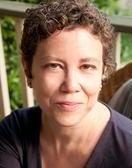The world needs many more books documenting interfaith marriage and interfaith children in the 21st century. However, Til Faith Do Us Part by Naomi Schaefer Riley takes a strangely pessimistic stance. And I don’t believe this gloom and doom is supported by the author’s own data. A few years ago, Riley wrote a piece warning against interfaith marriage in the Washington Post, and was met with strong critiques. Her work is funded by various conservative organizations and foundations. Quoting conservative Jewish, Christian and Muslim sources, Riley seems to be trying to dissuade people from intermarrying, despite the fact that she herself married a man raised as a Jehovah’s Witness.
How might conservative funding affect Riley’s perspective and conclusions? She states that interfaith couples are ignoring the challenges of intermarriage because of “our obsession with tolerance at all costs.” She claims that her survey shows that interfaith marriages are “generally more unhappy” and “often more unstable.” She then goes on to state that she would be “sorry if too many people entered into marriages that were unhappy or unstable.” But I found her statistics unconvincing, and her personal experience relevant.
Riley admits to feeling “lonely” attending Jewish services without her husband. Indeed, it can be difficult when a spouse does not participate in religious activities. It can also be difficult, as Riley documents, for an interfaith spouse who promised to give up their own religion and later regrets it. Both of these situations can be solved in an interfaith families community that encourages the celebration of both religions. Riley acknowledges this solution, while implying (incorrectly, I believe) that such dual-faith pathways are necessarily superficial or excessively difficult.
More importantly, I don’t believe Riley’s own statistics support her anti-intermarriage conclusions. She found “no discernible difference” in divorce between intermarried and same-faith marriages among Christians overall. She did find that evangelical Christians, specifically, were more likely to divorce if intermarried–an effect I attribute to the overlap between evangelical and fundamentalist views, rather than the risks of interfaith marriage. Those who believe the Bible is literal truth will find it hard to be married to those who believe otherwise.
Riley also found more divorce among intermarried Jews, but because her sample was so small she admits the finding is “tenuous.” To bolster her claim, she goes back to Evelyn Lehrer’s 1993 study of stability in interfaith marriages. Given the dramatic recent shifts in attitudes towards marriage (whether interfaith or gay), I am not compelled by statistics from an era twenty years ago when Jewish families were still commonly disowning children for intermarrying.
In terms of marital satisfaction, again, Riley found that the evangelical Christians were most unhappy in interfaith marriages. Those with a creed centered around being “born again” and saved may find it difficult to be married to anyone who thinks otherwise. No surprise there. The surprise, for me, was that Riley found that Jews actually reported being happier in interfaith marriages than in same-faith marriages, though the difference was not statistically significant. Or, maybe I’m not surprised, given the rarity of divorce in our interfaith families community.
Riley states that “those who marry outside their faith tend to take religion less seriously or lose their faith entirely.” In my own research on interfaith families communities, I found the opposite effect. For instance, many a Christian spouse has testified to the fact that their Jewish spouse is far more engaged with Judaism after intermarrying.
While Riley’s profiles of interfaith couples are a contribution to the literature, I found myself simply disagreeing with many of her conclusions. She writes that the “cultural pressures of pluralism” are “pushing people toward interfaith marriage.” Based on my experience and my research, my observation is that interfaith marriage is still something we choose in spite of cultural pressures, not because of them.
In her conclusion, Riley writes, “There is nothing about having diverse perspectives in a marriage that will make it inherently better–in fact, it may be less likely to succeed in the long run.” I don’t believe Riley’s own statistics support that statement. My own experience, and my research on interfaith families who chose both religions, brings me to the opposite conclusion. Diverse religious perspectives can lead to deeper questioning, deeper communication, deeper empathy, deeper bonds. And happy interfaith families.

